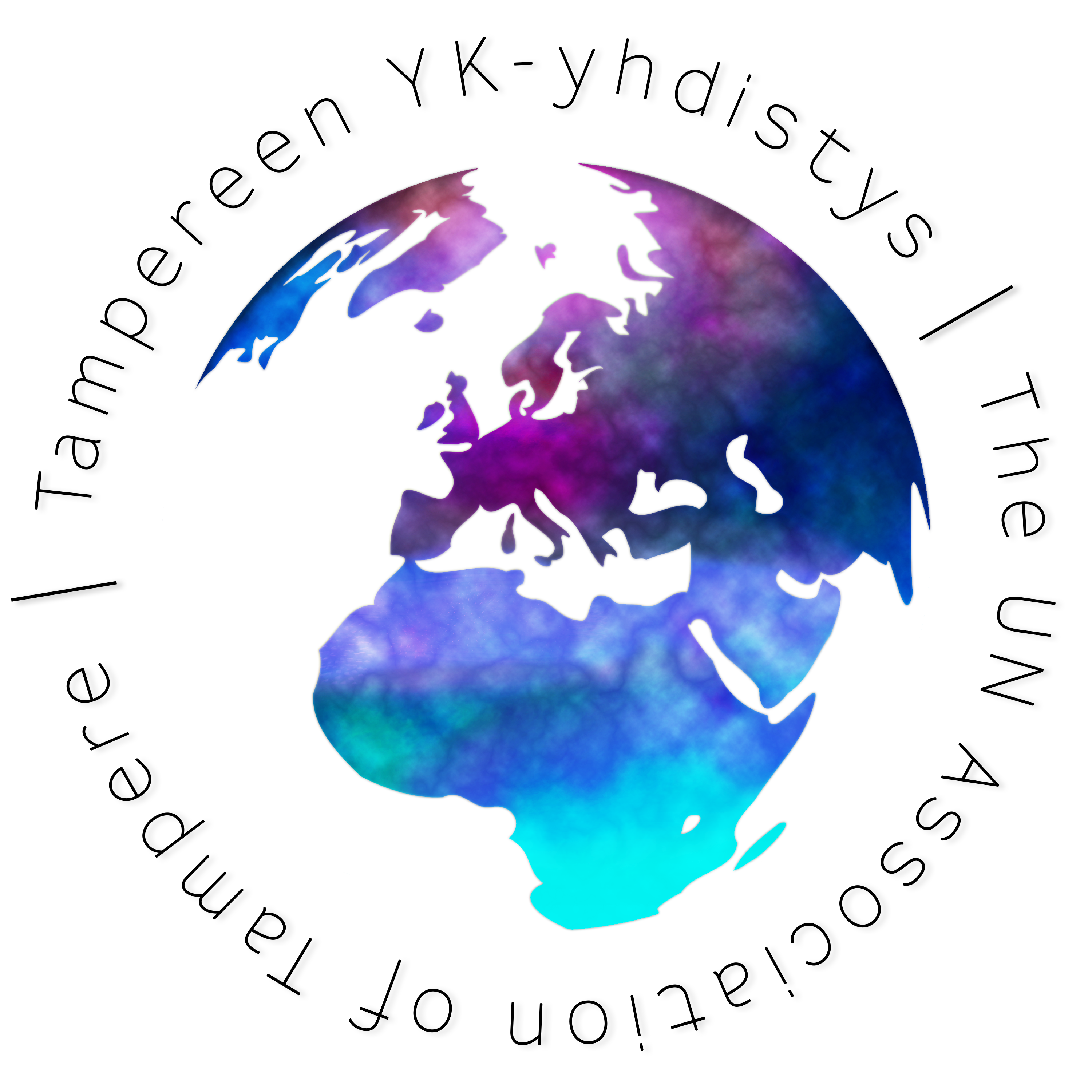On Sunday 22 March we celebrate the World Water Day. It is one of the yearly marked International Days of the United Nations that increase awareness and action for particular topics or events in the objectives of the UN. Elina, a vice-member of TAYK, wrote a blog post to address the interlinkages of water, climate change and peace.
Water for Peace in the era of changing climate
Today, 1 in 3 of the world’s population – around 2.2 billion people – live without safe drinking water. Water is everything. It is crucial for the survival of not only human beings but the whole planet and its ecosystems. The scarcity of water and water stress will only increase in the future due to global megatrends such as climate change, population growth and urbanization. Unpredictable and extreme climate events combined with increasing population that packs into urban areas will not only diminish the quantity but also weaken the quality and availability of freshwater resources.
Sounds somewhat miserable, right? After reading more about the global water situation, I noticed quickly how the facts and numbers were mostly devastating. However, we can see the challenges from another perspective. Water is, first of all, a key to tackle climate change and, what is more, cooperation over shared water resources can promote peace.
Water and Climate Change go hand in hand
The theme of World Water Day 2020 is water and climate change. The two are closely interlinked. We feel many effects of climate change through water or the lack of it – in floods and droughts. Water is also crucial for climate change adaptation since it ties together the whole climate system, human society and the environment. Our use of water, including sustainable sanitation, is crucial to reduce floods, droughts, scarcity and pollution. More effective use of water also reduces greenhouse gases. The key message of World Water Day campaign is water can help fight climate change .
One way to tackle climate change is to base all our policies on sustainable development goals adopted by the United Nations in 2015. At the heart of World Water Day is to support the achievement of Sustainable Development Goal number 6 that is to “ensure availability and sustainable management of water and sanitation for all” before 2030. To achieve the goal seems, honestly said, almost impossible during the upcoming ten years due to the lack of political will. However, there are also positive changes, which you can find more info about through the official SDG indicators.
Achieving Peace through Water
In order to build more sustainable and climate friendly societies we need sustainable peace. Water does not follow the borders set by human beings. Almost three billion people in 145 countries live in an area that is covered by transboundary river basins. Already now and especially in the future, water can increase conflict risk between and within states. Thus, water should be seen as a tool for peace instead.
Water diplomacy is a central solution. It takes the questions of peace and conflict at the heart of water issues and the water questions to the tables of diplomacy and conflict resolution[1]. In brief, the idea of water diplomacy is to increase the cooperation over transboundary freshwater resources. The role of water diplomacy is notable, especially in conflict-prone areas that already suffer from water scarcity. According to the Strategic Foresight Group, “any two countries engaged in active water cooperation do not go to war for any reason”. It is a clear message that cooperation over shared waters creates sustainable peace and peace, in turn, is a prerequisite to concentrate on tackling the climate change.
___________________
Finally, here are some practical tips on how to do water and climate friendly decisions in one’s everyday life.
Choose one thing today:
💧Take only a quick shower.
💧Choose a plant-based meal.
💧Turn off sleeping tech.
💧Don’t throw away edible food.
💧Shop sustainably.
#WorldWaterDay www.worldwaterday.org
More information and tips for climate actions here: https://www.un.org/en/actnow/
With these words, I want to wish all of you a Happy World Water Day!
Elina Häkkinen
Vice-member and former vice-chair of TAYK
Currently writing Master’s Thesis on Water Diplomacy as a toolbox for conflict prevention and peace mediation
Sources and more information:
Schmeier (2018), What is water diplomacy and why should you care? https://globalwaterforum.org/2018/08/31/what-is-water-diplomacy-and-why-should-you-care/
Strategic Foresight Group (2017), Water Cooperation Quotient. https://www.strategicforesight.com/publication_pdf/Water%20Cooperation%20Quotient%202017.pdf
UN Water (2018), Transboundary Waters. https://www.unwater.org/water-facts/transboundary-waters/
UN Water (2019), Key messages UN-Water Policy Brief on Climate Change and Water. https://www.unwater.org/publications/un-water-policy-brief-on-climate-change-and-water/
UN Water (2020), Transboundary Waters. https://www.unwater.org/water-facts/transboundary-waters/
UNECE/UNESCO (2015), Good Practices in Transboundary Water Cooperation. http://www.unece.org/fileadmin/DAM/env/water/publications/WAT_Good_practices/2015_PCCP_Flyer_Good_Practices__LIGHT_.pdf
Vetter, Thomas (2016), Water Connects. A Short Guide to Preventive Water Diplomacy. Supported by adelphi & the German Federal Foreign Office. http://www.idaea.csic.es/sites/default/files/Climate%20Diplomacy%20Report%20Water%202017.pdf
WHO/UNICEF (2019), Joint Monitoring Programme 2019 update report: Progress on household drinking water, sanitation and hygiene. https://www.who.int/water_sanitation_health/publications/jmp-report-2019/en/
[1] Water diplomacy can be defined as the use of diplomatic instruments to existing or emerging disagreements and conflicts over shared water resources with the aim to solve or mitigate those for the sake of cooperation, regional stability, and peace (Schmeier 2018).
